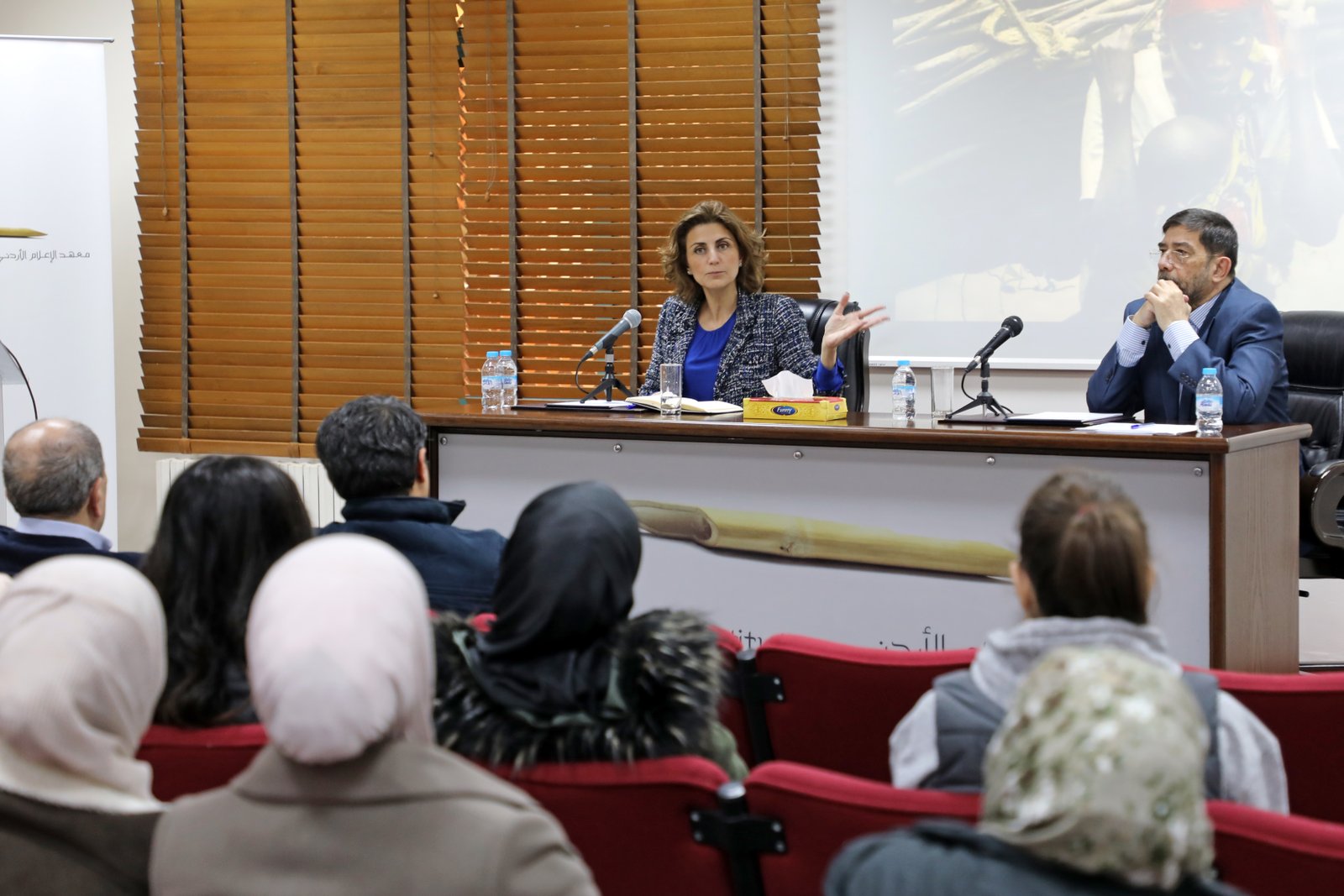
Jordan Media Institute - Amman
Dr. Salma Nims, Secretary-General of the Jordanian National Commission for Women (JNCW), confirmed the upcoming announcement of the Women National Strategy in Jordan (2020-2025), which relies on Jordanian values that enshrine women’s dignity as a foundation.
During a discussion at the Jordan Media Institute to commemorate International Women’s Day (March 8th), Dr. Nims said that Jordan is particularly advanced in defending women’s rights. She added that the hundreds of Jordanian women and men surveyed in preparation of the Strategy affirmed their belief that to preserve women’s rights is to preserve the rights of families and society as a whole.
She adds that prevalent double standards, biased legislation, and enforcement, and negative stereotyping against women is a global problem that is not limited to Jordan and the Arab region. She references illogical efforts made to “protect women” that, in reality, strip our daughters of their rights -- human rights -- which amounts to a crime regardless of motive. Dr. Nims mentioned that over one hundred women are currently held in administrative detention at Jwaideh Prison, which points to a systemic flaw in protective measures that rely on incarceration to keep women safe.
Dr. Nims went on to outline several examples of current local practices that JNCW monitors that indicate a mindset of treating women as incapable of making decisions for themselves or their children, and that limits their social and economic agency.
She emphasized that, despite the difficulties facing Jordan in its attempts to empower women, the country operates on a system of values that respects them, even if it has undergone some distortions due to cultural changes in the region, affirming that the General Iftaa’ Department is among the most prominent proponents of bridging the gap between men and women, relying on Islamic scripture that facilitates the removal of obstacles facing women. This is due to clear ideological basis in Islam that honors women. Offering the marriage contracts as an example, she said “the Islamic marriage contract is unmatched worldwide, as it lays a comprehensive framework that protects a woman’s rights, and leaves a lot of space for her to set her own conditions. The problem is when society considers this shameful, and places the woman as the weaker link in the family”.
JMI Dean Dr. Ziad D. Rifai said that women are pillars of societal development, adding that women throughout the world are burdened with immensely difficult roles and duties without receiving a fraction of their rights. He reaffirmed that gender-based issues are controversial globally and that the Institute, through its continuous academic and training programs, works with its students and trainees to contribute to the struggle against gender discrimination in the media, as well as combatting the hate speech that targets them.
Students who participated in the discussion consider the cornerstone of a journalist’s mission to be a profound belief in human rights, striving to present a balanced record of society’s issues. According to them, a journalist should shed light on issues that face both women and men in their demands for human rights, especially in the context of a local community facing various pressures, most importantly economic ones, as well as conflict arising between different sections of society.
The students also discussed the definition of “sexual harassment” in the controversial draft amendment to Jordan’s Labour Law with Dr. Nims, with the viewpoint that removing the term itself and replacing it with a detailed description of the criminal act may not have an effect on legal bearings but still constitutes an evasion of simply calling things what they are.



